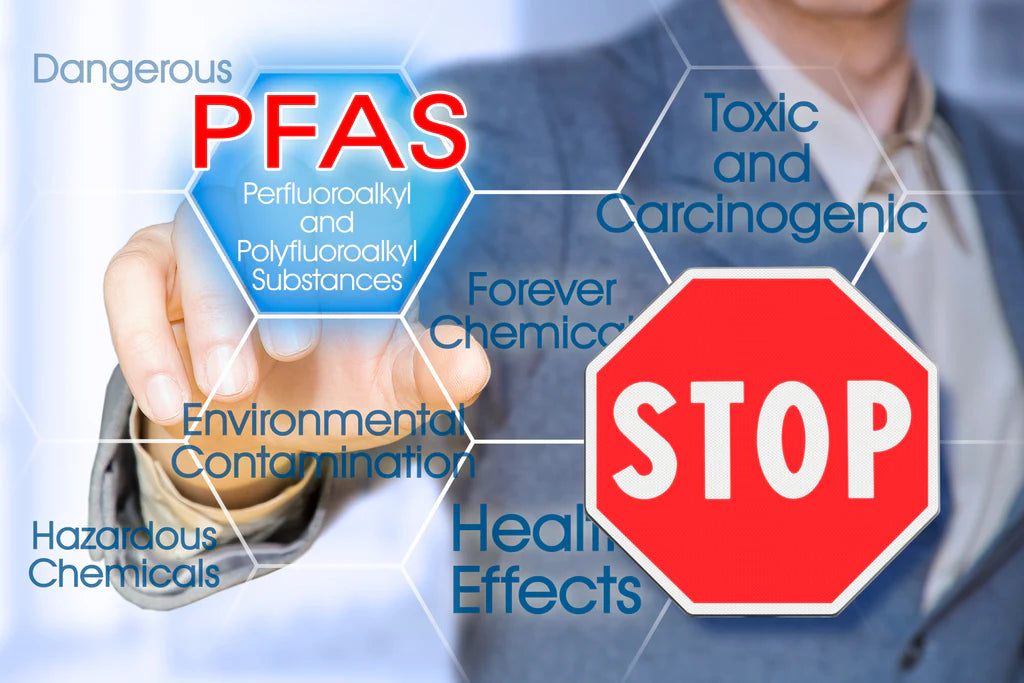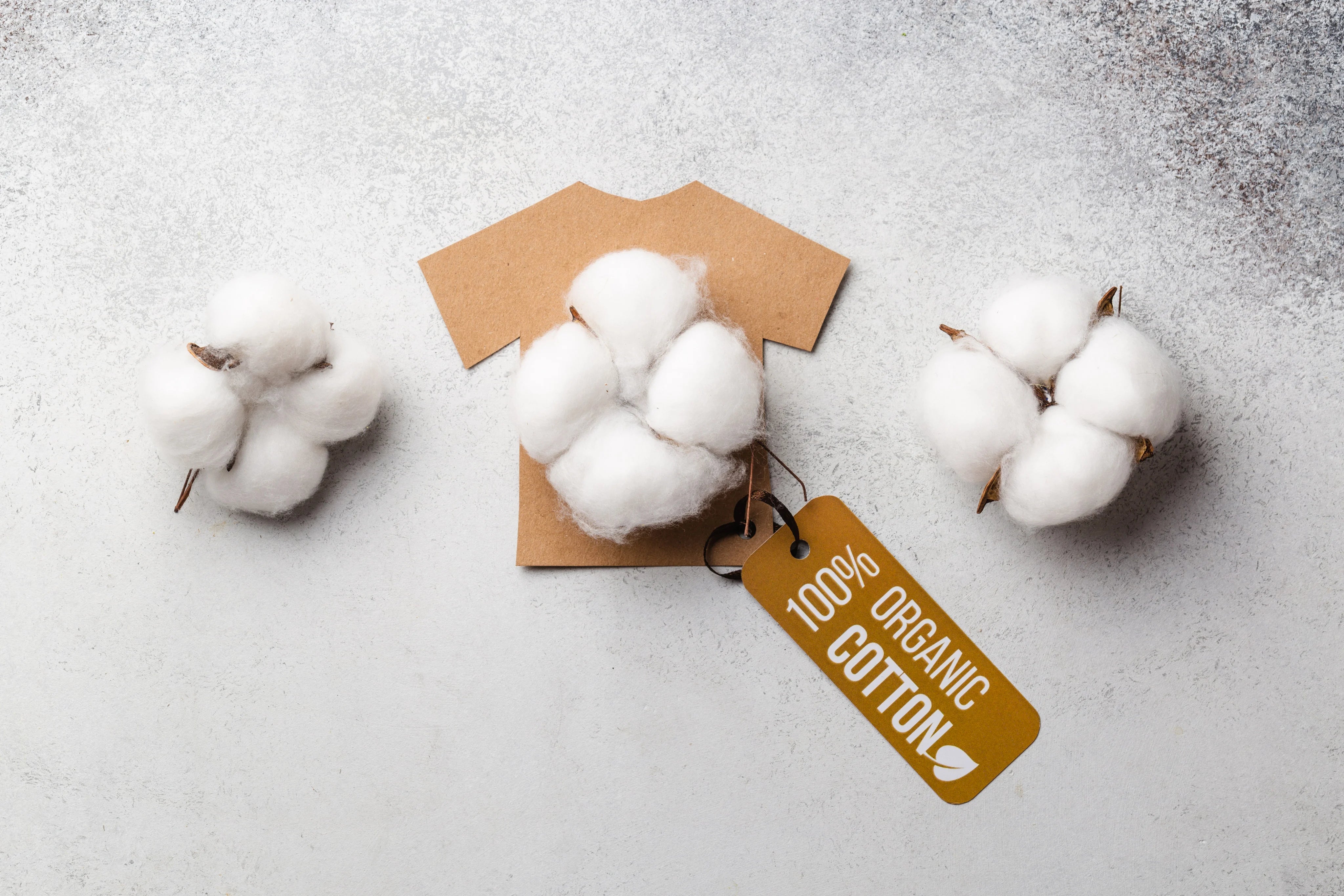Polyester is one of the most commonly used fabrics in the world, found in everything from clothing and bedding to upholstery and outdoor gear. Its durability, affordability, and wrinkle resistance make it a popular choice for manufacturers and consumers alike. However, when it comes to safety, especially for clothing that comes into direct contact with your skin, polyester raises some serious concerns. Here's why polyester is not only toxic but also why it shouldn't be worn on your body, particularly in intimate areas like undergarments.
The Problem with Polyester
Polyester is a synthetic fabric made from petroleum-derived polymers, specifically polyethylene terephthalate (PET). While its chemical makeup is designed to create a long-lasting, flexible material, the production and wear of polyester bring significant health and environmental risks.
-
Toxic Manufacturing Process The process of creating polyester involves heavy chemicals, including antimony, a known carcinogen. Antimony is used as a catalyst in the production of PET fibers. Exposure to antimony has been linked to respiratory irritation, skin rashes, and long-term health risks like organ damage. Workers in polyester manufacturing plants often face heightened risks due to these chemicals.
-
Chemical Residues Even after manufacturing, polyester garments retain traces of these harmful chemicals. When you wear polyester, these residues can leach onto your skin, especially when the fabric is exposed to sweat or heat. Over time, this leaching can contribute to skin irritation, hormone disruption, and other systemic health effects.
-
Breathability Issues Polyester is not a breathable fabric. It traps heat and moisture, creating an ideal environment for bacterial and fungal growth. For intimate wear, this can lead to infections, rashes, and general discomfort.
-
Microplastic Pollution Beyond personal health risks, polyester garments shed microplastics during washing. These tiny plastic fibers make their way into waterways and the ocean, where they harm marine ecosystems. By wearing and washing polyester, you contribute to this widespread environmental issue.
Why Skin Contact Matters
Your skin is your largest and only external organ, serving as a barrier and an interface between your body and the outside world. It's highly permeable, meaning substances that come into prolonged contact with it can be absorbed into your bloodstream. When polyester leaches harmful chemicals like phthalates, formaldehyde, and antimony, these toxins can bypass your body's natural defenses and accumulate internally.
The risks are heightened in areas of prolonged contact, such as undergarments. Wearing polyester boxers or briefs exposes some of the most sensitive parts of your body to constant chemical exposure. Over time, this could lead to a range of health concerns, from skin irritation to hormone disruption and even potential carcinogenic effects.
Why Opok Boxers are Different
At Opok, we understand the importance of protecting your skin and health, which is why we’ve designed boxers that prioritize safety, comfort, and sustainability. Our boxers are crafted from organic, non-toxic materials like GOTS-certified organic cotton. Here's why this matters:
-
Chemical-Free Unlike polyester, organic cotton is grown and processed without harmful pesticides or synthetic chemicals. This means no toxic residues are left on the fabric, ensuring safe contact with your skin.
-
Breathable and Comfortable Natural fibers like organic cotton are far more breathable than polyester. They wick moisture away from the skin, keeping you dry and reducing the risk of irritation or infection.
-
Hypoallergenic Opok boxers are designed for even the most sensitive skin. Free of dyes, finishes, and treatments commonly found in synthetic fabrics, they reduce the risk of allergic reactions or discomfort.
-
Environmentally Friendly Organic cotton is not only safer for your body but also for the planet. Its production avoids the release of harmful chemicals into the environment, and it’s biodegradable, unlike polyester, which contributes to microplastic pollution.
A Closer Look at Polyester's Long-Term Risks
Hormone Disruption
Polyester fabrics often contain phthalates, a group of chemicals used to make plastics more flexible. Phthalates are known endocrine disruptors, meaning they can interfere with your body's hormonal balance. Hormone disruption has been linked to fertility issues, developmental problems, and chronic illnesses.
Heat and Friction
When polyester is worn in areas prone to heat and friction, like the groin, it can exacerbate chemical leaching. The heat and sweat break down the fibers, accelerating the release of toxins directly onto your skin.
Cumulative Exposure
One of the most alarming aspects of wearing polyester is cumulative exposure. While a single day in polyester boxers may not lead to noticeable health effects, repeated daily contact with toxic chemicals can accumulate in your system over time, contributing to long-term health problems.
Make the Switch: Prioritize Your Health
Choosing safe, organic fabrics for clothing—especially for items like boxers that sit directly against your skin—is an investment in your health and well-being. Opok boxers represent a safer, more sustainable alternative to polyester. Not only do they eliminate the risks of chemical exposure, but they also provide unmatched comfort and breathability, keeping you comfortable and healthy.
If you’re ready to make the switch, explore the Opok collection today. Protect your skin, your health, and the planet by choosing organic, toxin-free clothing.
In a world dominated by synthetic fabrics, it’s easy to overlook the risks of materials like polyester. But your health and the environment depend on conscious choices. With brands like Opok offering safe and sustainable alternatives, you don’t have to compromise. Say no to polyester and yes to a healthier, toxin-free lifestyle.




Leave a comment
This site is protected by hCaptcha and the hCaptcha Privacy Policy and Terms of Service apply.